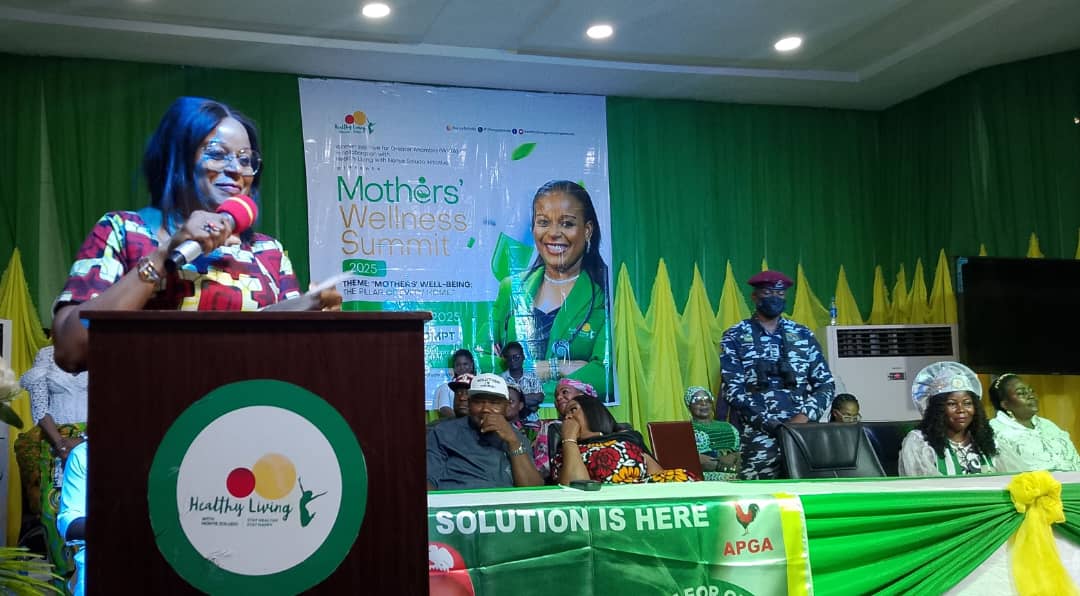FG to Leverage Jewellery Making for Employments, Revenue Generation – Dr. Alake

The Federal Government has reaffirmed its commitment to harnessing the jewellery-making industry to equip Nigerian youths with skills, create employment opportunities, and boost national revenue.

Minister of Solid Minerals Development, Dr. Dele Alake, stated this during an inspection of finished jewellery products and facilities at the Laurel School of Mines Jewellery Centre in Abuja.
Rather than exporting raw materials abroad, the Minister emphasized the importance of processing Nigeria’s abundant mineral resources into finished jewellery and gemstones locally.
According to a statement signed by Kania Maliki Andeyaba, Deputy Director and Head of Press and Public Relations at the Ministry, Dr. Alake underscored the Centre’s role in enhancing value addition in the solid minerals sector.
Despite the Ministry awaiting expenditure approval for the 2025 budget, Dr. Alake assured that strategic plans are in place to ensure every aspect of the solid minerals sector contributes positively to the Nigerian economy.
Building a Sustainable Jewellery Industry
“Once funds become available, we will immediately attract jewellery and gemstone manufacturing factories to Nigeria,” Dr. Alake said. “This Centre will serve as a talent reservoir, supplying skilled professionals to the industry. It is a crucial step towards industrialization.”
He highlighted that the Centre is already making significant contributions by training individuals who will either establish their own businesses or support emerging factories. “Rather than exporting raw materials for processing abroad, we are now refining them locally. This enhances economic value, creates employment, increases production, generates government revenue, and ultimately leads to greater national development.”
Dr. Alake also expressed optimism that illegal miners would transition into formalized, revenue-generating ventures through the Centre’s programs. “This initiative offers our youths an opportunity to acquire skills beyond mere handiwork—it is industrialization in action,” he noted. “Within a year, we will have tangible economic data demonstrating the Centre’s contribution to the GDP.”
Local Products Compete Globally
Permanent Secretary of the Ministry, Dr. Mary Ogbe, praised the quality of jewellery produced at the Centre, stating that they can compete with internationally manufactured pieces. “Mining practices are becoming more standardized, and the technologies used here are among the latest in the industry,” she said. “The progress is evident.”
On securing National Assembly support for the industry, Dr. Ogbe suggested inviting lawmakers to witness the Centre’s activities firsthand. “By exposing members of the National Assembly to this initiative, they can encourage their constituents to participate, thus fostering job creation and reducing insecurity.”
Training and Industry Growth
Managing Director and CEO of the Laurel School of Mines, Mr. Tope Adebanjo, described the Ministry’s support as “unbelievable.” He noted that the training program is a collaboration between Nigerian and Sri Lankan experts and follows a structured curriculum.
“Our program lasts 12 weeks, and before graduating, students travel to Kano to learn from industry veterans with over 30 years of experience,” Adebanjo explained. “Additionally, they receive starter packs, ensuring they have the tools to launch their own businesses upon completion.”
He emphasized the importance of early exposure to jewellery making, referencing his experience in Dubai where a 10-year-old was among his classmates. “We want to catch them young and cultivate a new generation of skilled professionals.”
Students Share Their Experiences
Several trainees at the Centre shared how the program has transformed their lives and perspectives on the industry.
Samson Haruna described the training as “an experience money cannot buy.” He highlighted the business potential beyond production, including marketing and gemstone trading. “This is an opportunity to be a pioneer in a growing industry,” he said. “With the Tinubu administration investing in this sector, now is the time to seize the opportunity.”
Mercy Thompson, a trainee from Benue State, shared her excitement about learning a completely new skill. “I knew nothing about minerals and jewellery before, but now I can create pieces that amaze my family,” she said. “I look forward to passing this knowledge to my children.”
READ ALSO: Illegal Mining: Marshals Dismantle Illegal Mining Site in Rafin Gabas, Kokona LGA, Nasarawa
Senate to Consider Tax Reform Bills After Resumption, Bamidele Confirms
Another student, Omachile Abraham from Nasarawa State, described the training as “monumental,” stating that the jewellery industry has the potential to rival the petroleum sector in terms of economic impact. “This industry is a goldmine,” she remarked. “In a decade, we will see its transformative impact on Nigeria’s economy.”
However, the Federal Government’s push to develop the jewellery-making sector is a strategic move to create employment, enhance value addition, and drive economic growth. With strong institutional backing, skilled workforce development, and industry expansion, Nigeria is set to establish itself as a hub for jewellery production, contributing significantly to national revenue and job creation.





